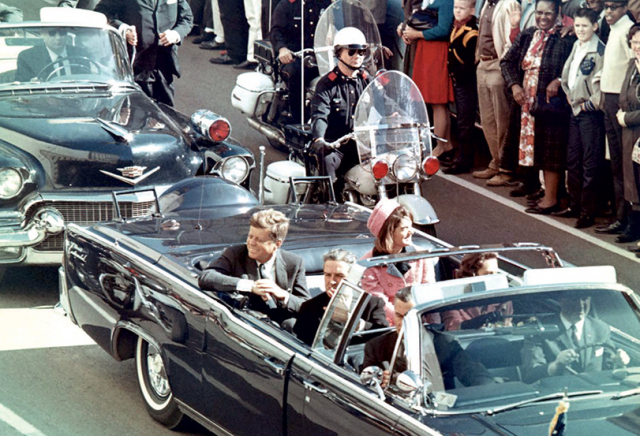60th anniversary of JFK's assassination

If my generation all remember where they were when the aeroplanes, hijacked by terrorists, flew into the Twin Towers on 11 September 2001, then my parents' generation all knew where they were when they heard about the assassination of US President John F. Kennedy. Before the conspiracy theorists and the docudramas got hold of him, his story was one of hope for millions of Americans, and for many more across the globe. A president who was different from the old guard, he represented youth, vitality, liberalism and idealism, and he was a war hero just to cap it all off. He didn't seem afraid to tackle the racial prejudice of the US or to challenge Soviet dominance through an iron will and a pragmatism of discourse.
When the news of his death was announced the whole world seemed to go into shock. At only 46 years of age it had seemed that he would be one of the US's most important and impressive leaders for decades to come. His death showed the deep cracks in US society, the level of hatred that existed among communities and how much work there was to be done by politicians and activitists to educate as well as to campaign.
Now his legacy is often marred with the revelations about his affairs and predilections, but on the 60th anniversary of his death it is just as important to remember what he represented in the post-war era to the millions who mourned his passing.
General resources
- Ending Camelot: the assassination of John F. Kennedy (Historian article)
- The Kennedys and the Gores (Conference keynote recording)
- Kennedy and the Bay of Pigs (Historian article)
- Vietnam and the Vietnam War, 1954-1968 (Podcast)
Secondary resources
- JFK - the medium, the message and the myth (Teaching History article)
- Bertrand Russell's role in the Cuban Missile Crisis (Teaching History article)
- A-level topic guide: The USA in the 20th century

